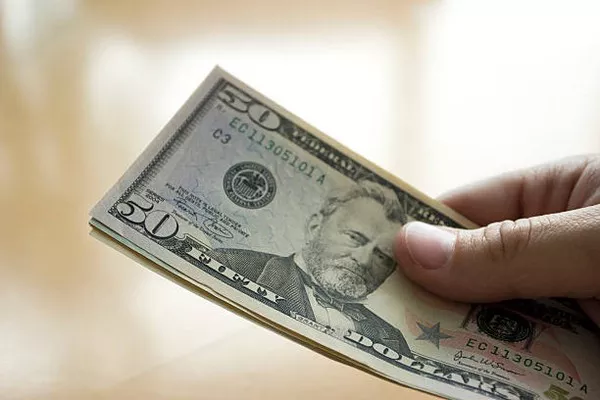Egypt witnessed a substantial decrease in the US dollar exchange rate within the black market, dropping by approximately LE20 on Saturday to reach LE43.
This recent decline follows a previous drop to LE63 a week earlier, a development attributed to the government’s announcement regarding the attraction of new investments and the successful conclusion of the Ras al-Hikma deal, injecting the budget with US$35 billion.
Prime Minister Mostafa Madbouly disclosed during a government meeting over the weekend that Egypt had received five billion dollars from the initial installment of the Ras al-Hikma deal, with another five billion arriving on Friday. Measures have been initiated to coordinate between the Central Bank of Egypt (CBE) and the UAE’s counterpart in the Ras al-Hikma deal to convert five billion from the deposit into Egyptian pounds.
Hani Abul-Futouh, a banking expert, acknowledged the persistent reality of the pound’s depreciation against the US dollar at the CBE. However, he noted that the decline in the dollar’s value in the black market could mitigate the repercussions of the pound’s depreciation against the dollar. Abul-Futouh emphasized that a convergence between the dollar exchange rates in the parallel market and the official rates in banks would bolster the pound’s value.
He further remarked that the possibility of currency devaluation by the CBE remains, and the parallel market is likely to continue experiencing price fluctuations. Nonetheless, Abul-Futouh assured that the price would range between LE 43-52 without witnessing any further escalation.
Ashraf Ghorab, an economic expert, highlighted Egypt’s recent signing of the Ras al-Hikma project as a significant factor contributing to the decline in the dollar exchange rate within the parallel market. He anticipated a notable improvement in foreign exchange availability in the forthcoming period.
Ghorab emphasized that this development would empower the government to regulate and eliminate the black market for currency by providing sufficient hard currency to importers. Such measures, he contended, would stimulate economic activity, boost production, increase the supply of goods, and alleviate production costs.


